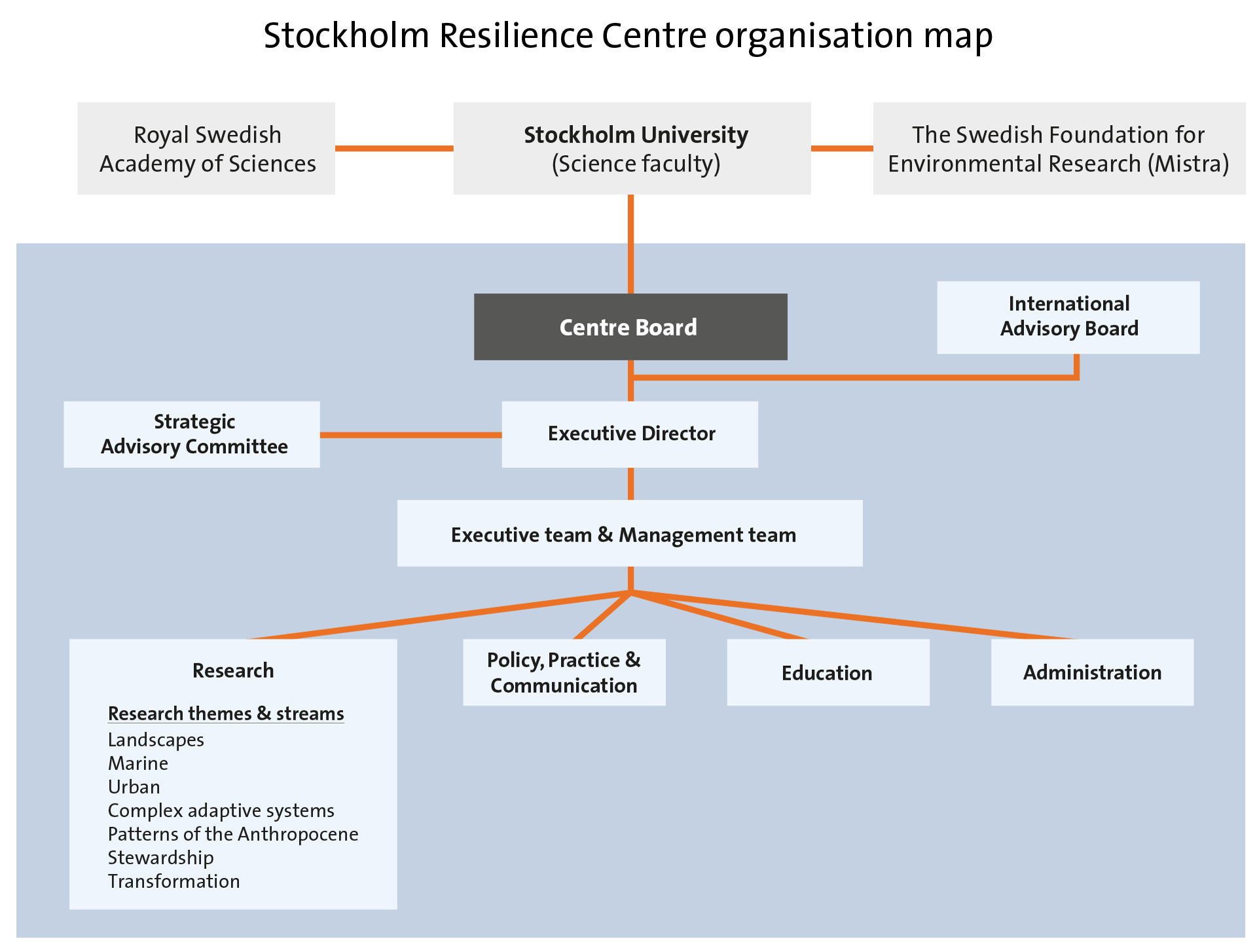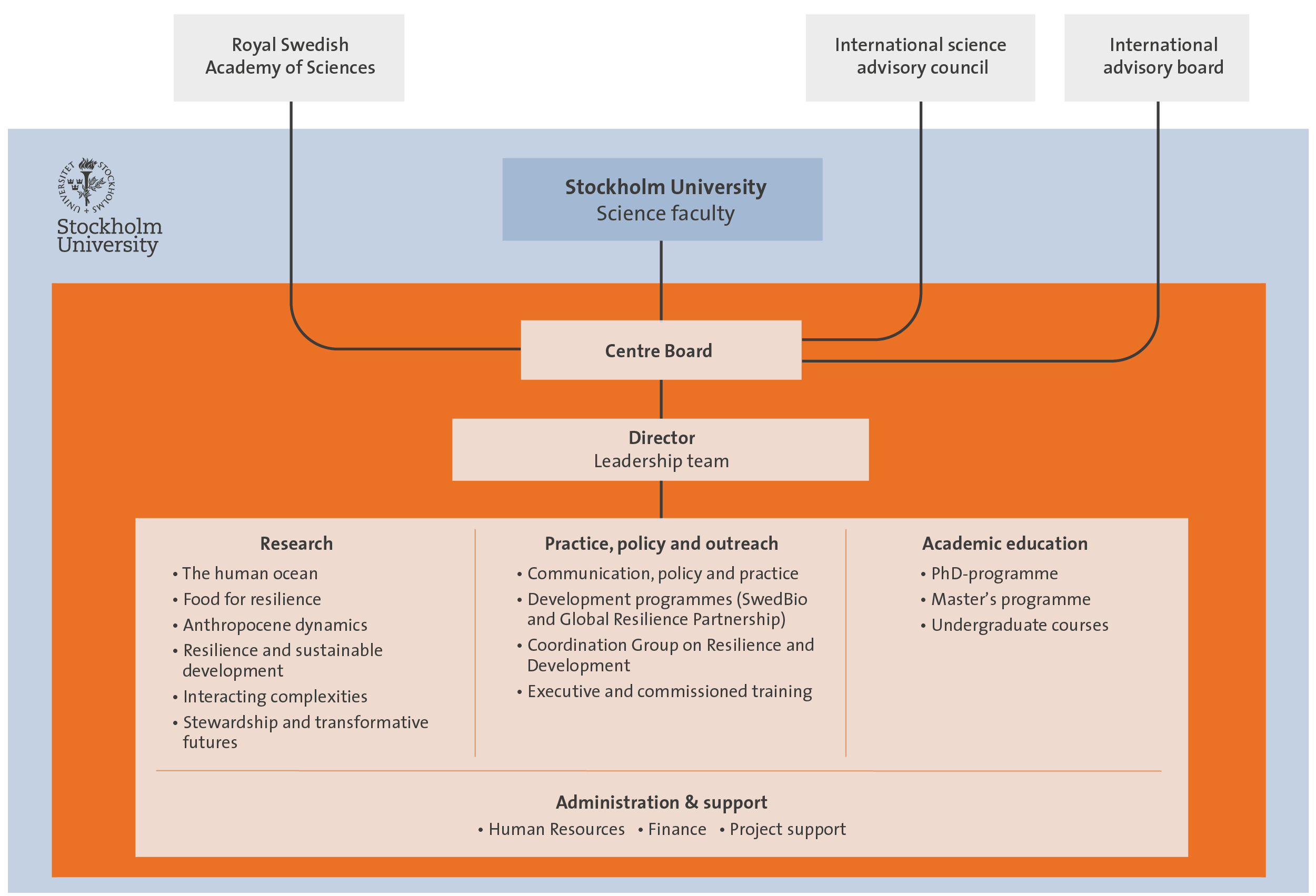About us
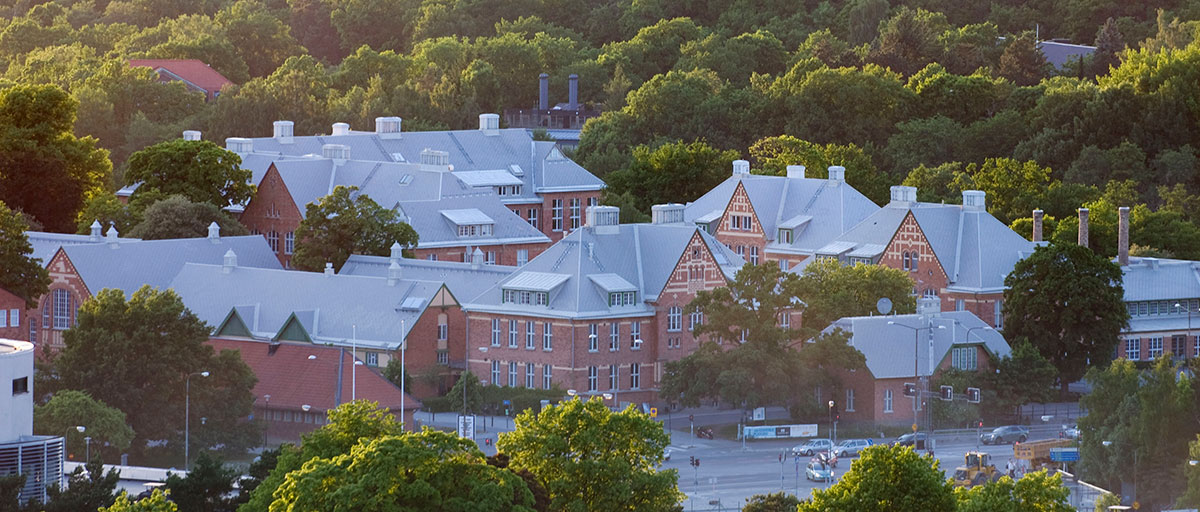
Kräftriket, the home of the Stockholm Resilience Centre, is situated within a national urban park and part of the Stockholm university campus. Photo: J. Lokrantz/Azote
- Founded in 2007
- A joint initiative between Stockholm University and the Beijer Institute of Ecological Economics at The Royal Swedish Academy of Sciences.
- Approximately 140 members of staff
- The mission of the Centre is to advance the scientific understanding of the complex, dynamic interactions of people and nature in the biosphere; train the next generation of sustainability researchers and leaders,; and engage in collaborations with change agents.
Stockholm Resilience Centre (SRC) is an international research centre on resilience and sustainability science
Since its launch in 2007, SRC has developed into a world-leading science centre for addressing the complex challenges facing humanity.
The centre is a joint initiative between Stockholm University and the Beijer Institute of Ecological Economics at The Royal Swedish Academy Sciences.
It is governed by a board with additional strategic advice provided by two separate advisory councils.
We believe in the importance of reconnecting to the biosphere. We must stop considering nature as something separate from society because people and nature are truly intertwined in what we refer to as social-ecological systems. Development can no longer be done without an increased understanding of nature’s role for our own survival and well-being.
Vision and mission
Our vision is a thriving and resilient biosphere that enables well-being for all.
Our mission is to:
- Advance the scientific understanding of the complex, dynamic interactions of people and nature in the biosphere
- Train the next generation of sustainability researchers and leaders
- Engage in collaborations with change agents.
Our vision and mission are accompanied by a set of underlying principles, as well as a collection of values and practices that guide the work culture:
- People and nature are deeply intertwined, co-evolve, and behave as complex adaptive systems
- Many patterns, processes and dynamics of the Anthropocene are novel and must be better understood
- Biosphere stewardship can enable transformation towards resilient, sustainable, and just futures
Organizational values and practices that define our working culture:
- Scientific rigor and integrity underpin all our work
- A collaborative, trust-based and creative working culture enables us to achieve impact
- Learning, experimentation and reflection are promoted in all our activities
- Diversity, inclusion, and care are principles championed across the organization
Organisation map
Our science
All our work is rooted in the science we do. This means our long-term credibility will always be based on putting science first. Our research is based on innovative methodologies and extensive collaboration across disciplines and with society at large. Our work on everything from healthy and sustainable food to the greening of cities and financial markets has spurred new thinking on sustainability within science, policy and business. We have created a work environment that attracts researchers from around the world and we publish in high-impact scientific journals.
Read more about our research here
Publications per discipline & publications in high impact journals
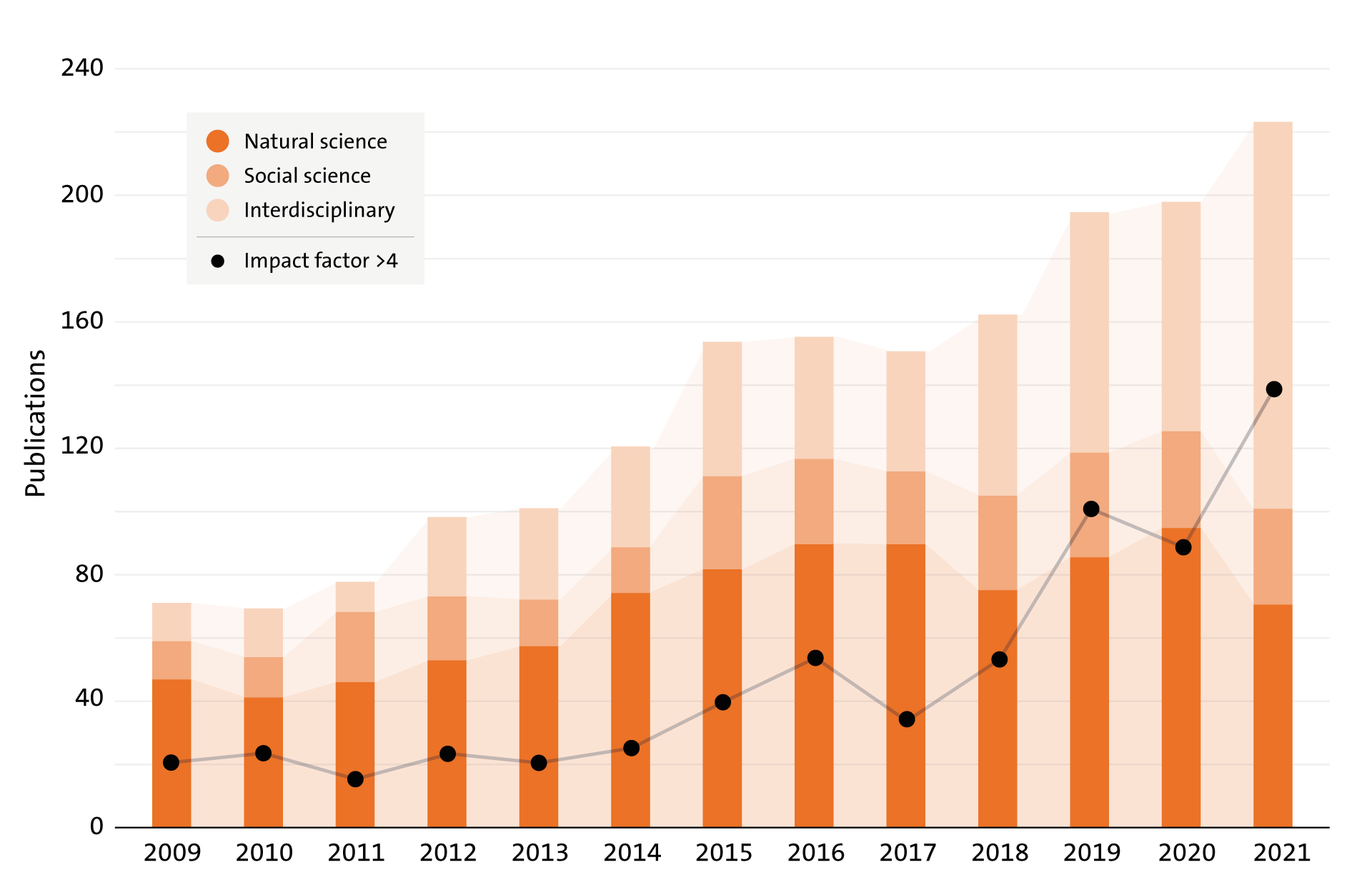
Annual number of citations
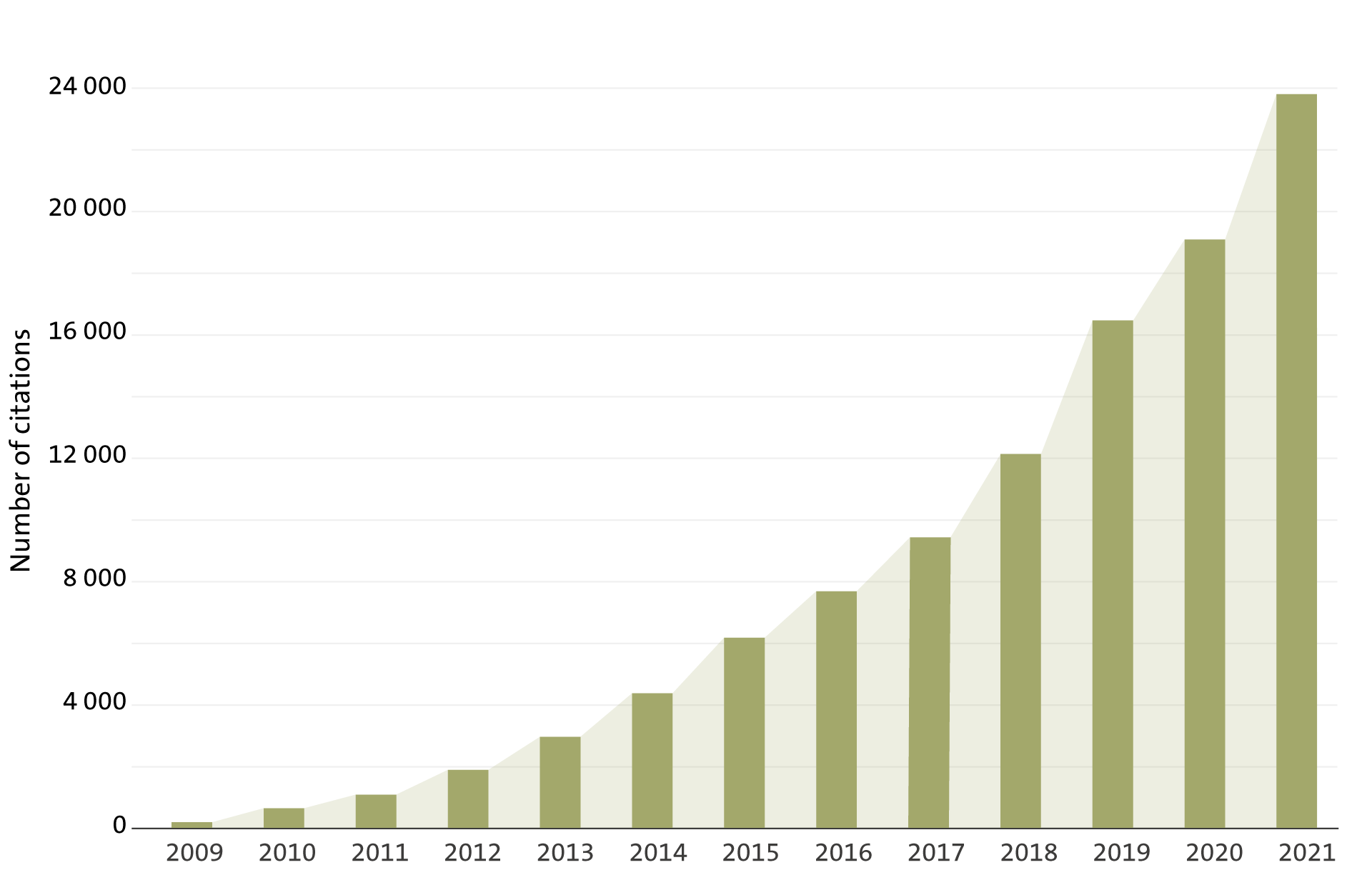
About 8 % of all our published articles belong in the top 1% of their academic fields, according to Thompson Reuters’ Essential Science Indicators, a research analytics tool. Centre founder and science director Carl Folke is one of the world's most cited researchers.
The Stockholm Resilience Centre has emerged as a world leader in the conduct of interdisciplinary research on the dynamics of inter-connected social ecological systems. To have achieved this barely two years after its inauguration is a remarkable accomplishment indeed.
Professor William C. Clark, Harvard University, from the 2009 SRC “Start-up Review”
Our education programmes
We offer interdisciplinary courses on Undergraduate, Master's, PhD levels of University education. We also offer an Executive Programme in resilience thinking designed for CEOs, chairpersons and executive VPs.
Our education programmes are considered among the best in Sweden. In 2013, the Swedish Higher Education Authority awarded our Master’s programme “Social-Ecological Resilience for Sustainable Development” its highest grade – “very high quality”. Among all 39 courses from 15 universities in the field of environmental sciences, only three received this rating. Of these three, only SRC's Master’s programme received the highest grade in all the sub-areas that were assessed.
The centre also currently employs more than 25 PhD students that form part of the SRC PhD programme. The aim is to produce future researchers who can expand knowledge to allow societies to understand and purposefully shape the biosphere for a sustainable future.
Read more about our education programmes here.
Our policy and practice interactions
We want to be an active, scientific partner in multiple change processes. That is why we develop science with real world application.
Co-design and co-production of knowledge is a hallmark of our work, regardless if it is informal dialogues with small communities or senior executives of large international companies.
This interaction shapes our research focus and helps us become better sustainability scientists. We understand more of the world and can ask more informed questions.
The Coordination Group on Resilience and Development identifies synergies and supports internal coordination across strategic our work related to resilience and development. This includes specific research and our Sida funded programmes SwedBio and the Global Resilience Partnership. The group complements and works closely with our research on resilience and sustainable development. The group is identifying and providing guidance on center-wide issues that require, or benefits from, coordination across the centre.
Help us defend the science that shows we are destabilizing our climate and stretching planetary boundaries to a perilous degree
UN Secretary General Ban Ki-moon, Leaders’ Dialogue on Climate Change, New York, 20 September 2011
